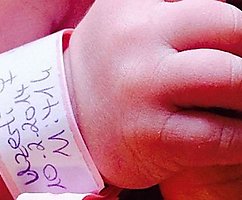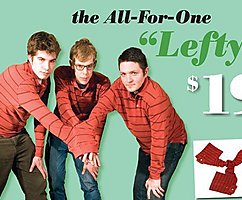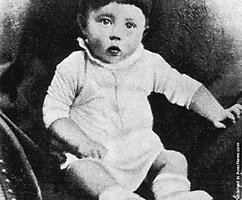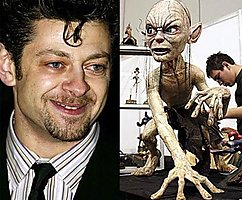10 simple logical puzzles and paradoxes to make your brain work
 Bashny.Net
Bashny.Net

The website publishes for the reader top ten most interesting logical paradoxes, mysteries and dilemmas. They do not belong to the category of the most difficult, but still will make you use the brain. Try to understand them yourself before reading the answer! The dilemma of the missionary a Missionary was taken prisoner by a tribe of cannibals. The chief of the tribe invites him to guess what form it will be eaten roasted or boiled.
At the same time, the leader says, if missionary will guess correctly, it will cook; if not roast.
After some thought, the missionary smiles and says quietly, "You gonna cook me".
What is so calmed missionary?
Answer:
If its really going to roast, it appears that he guessed, and hence, it is necessary to cook. If his cook, so he's not guessing and it should be just to roast. It turns out that cannibals no way out: they will not be able to eat it.
Probability question This unusual question came up mathematician Raymond Johnson:
If you choose an answer at random, what is the probability that it is correct?
a) 25%
b) 50%
C) 60%
d) 25%
Answer:
The correct answer is 0%, i.e. it is not proposed amongst the results.
Explains the possible number of correct answers from 0 to 4, then the probability of randomly selecting the correct one should be 0, 25, 50, 75 or 100%. This automatically eliminates the option) (the probability of 60% can not be).
Further, since, a) and d) are the same, they are either both correct or both incorrect.
So, we have 4 mutually exclusive options:
1: a), b) and d) is the correct answer.
2: a) and d) is the correct answer.
3: b) is the correct answer.
4: the correct answer is no.
The first option is impossible, because a probability cannot simultaneously accommodate 25% and 50%.
The second option is impossible, because if 2 answers are correct, then the probability of selection should be 50%, not 25%.
Same thing with the third option: if only 1 option is correct, then the probability to choose it is 25%, not 50% (as mentioned in b)).
So that leaves option 4: the correct answer is no. Therefore, the probability to choose the correct answer is 0%.
The paradox of thrift, Our economy is experiencing not the best times. Therefore, everyone should save and not spend money, because we have not enough money for consumption of unnecessary things.
However, if all start saving, aggregate demand will fall, leading to falling revenues. As a result, our savings will be even less.
What should I do?
Answer:
A clear answer to this question, the underlying Keynesian economic theory does not exist. However, the famed economist Friedrich Hayek (the founder of the Austrian school of Economics) argued that the conclusions formulated incorrectly.
In his view, although the mass economy, and will lead to a drop in income, this does not entail the economic downturn, because the additional savings will lead to an increase in capital and, consequently, increased production. Once this new, more productive capital structure reorganized within the existing structure, the real cost of production for most businesses will fall.
The paradox of the liar Is one of the most famous of the paradoxes formulated by the ancient Greeks. It exists in many different formulations and variations. The simplest version, the paradox of Epimenides is:
He of the Cretan says that all Cretans are liars but He is himself a Cretan; therefore he is a liar. But if he is a liar, then what he said is a lie and thus Cretans are truthful; but in this case He, being a Cretan, is telling the truth. However, calling the Cretans liars, He himself is a liar, and what he says is a lie.
Thus it is possible endlessly to prove that the pronounced Epimenidou phrase is alternately a lie and the truth.
Answer:
Oddly enough, this paradox has a logical solution.
If we assume that He knew of at least one Cretan (other than yourself) who is not a liar, then his statement is a lie (since he talked about all), even if it correctly describes himself as a liar.
The trolley problem Is not a paradox and a thought experiment, which is a classic ethical dilemma.
Heavy unmanageable trolley hurtles down the tracks. On the way it are five people tied to the tracks by the mad philosopher. Fortunately, you can toggle the arrow — and then the truck goes on another siding. Unfortunately, the siding is one person, also tied to the rails.
What are your actions? If you do nothing, 5 people die, and you will be indirectly responsible for their deaths (due to interference). If the toggle arrow will be killed only 1 person, but you are directly guilty of his murder.
Answer:
Of course, solutions are not. This problem is widely used in cognitive science and neuroethics to explore mechanisms for making rational moral decisions. It is based on thousands of psychological experiments, and in our time it has acquired new urgency in connection with the advent of self-driving cars.

The judicial paradox of John free-trained bill of law on the condition that he would pay him for the knowledge, as soon as I win the first case in court. After studying the bill for some reason and has not received any lawsuits either unlucky, or he just doesn't want to pay John.
Angered by this, John filed a bill in court, demanding to compensate tuition.
John argues as follows: if I win the suit, the bill will have to pay me by the court decision; and if he wins, he will still have to pay me because we agreed that he would pay me as soon as you win the first case in court. Therefore, in order to avoid unnecessary legal costs, I would place the judge just ordered bill to pay me and all.
Bill also says this: if I win, the court decision I won't have to pay John. If John wins, I won't have to pay him under the terms of our agreement — because it turns out that I have not won a single case. So, judge, I would have simply dismissed the action.
What to do to the judge?
Answer:
In fact, from a legal point of view, both are wrong. In their arguments they in turn rely on the verdict of the court, on conditions of the prisoner between them the contract. As these documents are not mutually exclusive in real life the court without a problem would solve this case.
The ship of Theseus This ancient paradox is this:
According to Greek myth the ship in which Theseus returned from Crete to Athens was kept by the Athenians for a very long time as a valuable heirloom. When repairing it has gradually replaced the boards, as long as there is not one original.
Can we say that the ship of Theseus, or is it another ship? (Also, the question arises: in the case of construction of old boards the second ship — which one is real?)
In our time, this paradox can be regularly observed in the road old pop groups in which there is not one original musician.
Answer:
At different times philosophers have offered different solutions.
The classical solution of Aristotle reads as follows: any object described by a number of "reasons" (characteristics) — the form, material, method of manufacture and the ultimate goal (the point). Because the most important is the last — the essence, that is the purpose of the object — the ship remained the same, because its essence is not changed, only changed the worn material.
Other philosophers have noted that first we must agree on the definition of "the same".
The suicide of Ronald Opus, This story is often told as a real event. She's probably familiar to you by gorgeous film "Magnolia." In fact, it was invented in 1987 by Don Harper mills, a former President of the American Academy of Forensic medicine to show how different legal consequences can follow each twist in a homicide investigation.
A young American Ronald Opus due to financial difficulties decided to kill herself. Climbing on the roof of a nine-storey building, he jumped down. But just at this time, the painters pulled at 7-th floor safety net. And he'd definitely still alive, fell on the net, if a tragic accident at a time when he was flying past the window of the 8th floor, his head did not hit the shot.
The investigation revealed that the gunman was an elderly tenant of the eighth floor was aiming at his wife, but missed and hit the window. Shotgun always hung on the wall unloaded, and in moments of fights the old man threatened his wife with a gun, not intending to kill her.
It turned out that a shotgun loaded their son, hoping that the father will kill the mother, and he will go to jail. That son was Ronald Opus: so he wanted to take revenge on their parents for their refusal to grant him financial assistance.
Whether the death of Ronaldo, murder or suicide?
Answer:
The answer, of course, does not exist. In urban legend, the examiner concludes that it is a suicide, but in real life it could be not so clear. Let's start with the fact that to threaten a man with a gun (even unloaded) is in itself a crime in many jurisdictions. The father is at least guilty of careless handling of firearms, and as a maximum on involuntary manslaughter.
The paradox of the unexpected execution of One Sunday the prison warden called a criminal, sentenced to death, and told him: "You will be executed the following week at noon. The day of the execution will be a surprise for you — you learn about it only when the executioner at noon I will come in to you".
The prisoner thought about his words and smiled: "on Sunday I execute not can! Because then on Saturday evening I will know about it. And, according to the chief, I will not know the day of his execution. Therefore, the last possible day of my execution — Saturday. But if I'm not executed on Friday, I will know in advance what I'll be executed on Saturday, hence it can be excluded". Consistently excluding Friday, Thursday, Wednesday, Tuesday and Monday, the offender came to the conclusion that the chief will not be able to execute, performing all his words.
Next week, the executioner knocked on his door at noon on Wednesday — it was a complete surprise to him. Everything the warden said was true.
Where the flaw in the argument of the prisoner?
Answer:
The fact that the arguments of the prisoner do not contain errors, but the output was incorrect, suggests that the cause of the error lies in an incomplete consideration of the situation of the prisoners, that is, the prisoner had overlooked some details.
And indeed, in order not to be unexpectedly executed on Monday, the prisoner must be sure that he will be executed on Monday, and he convinced himself that all will not be executed.
Realizing that his conviction makes punishment a sudden, he lost that him unfavorable conviction. And perhaps even realize that it needs to be sure that it really is to be executed tomorrow. And then, when the day of execution, the execution will be fully expected for him and perhaps for this reason, it will cancel.
The paradox of the heap of sand a Pile of sand in a million grains of sand. If you remove one grain of sand, it will still be a lot. If you remove one, it will still be a heap.
If we continue to remove one grain of sand, until there is one grain of sand — that is it still a heap?
Answer:
You need to set a fixed limit. If we accept an agreement under which the 10000 grains is a heap, then anything less than that, not a bunch.
However, it seems unjustified to make a distinction between 9999 and 10001 grits. Then you can expand the decision, saying that there is a certain boundary, but it is not necessarily known.
via lifter.com.ua/post/4718
Tags
See also
The problem about soldiers
Created a catapult for humans: a new game based jumpers
Book for cleaning the brain from office problems, it is recommended to all!
A little bit of surrealism to warm up the brain
Slap on procrastination and other strange ways to get yourself to work
35 useful facts about careers for those who are yet 35
Caution! 5 major signs that can not go on
10 foods for the brain young: better prevention of Alzheimer's disease is not found!
Tested, works: slaps against Facebook and other non-trivial productivity secrets

















